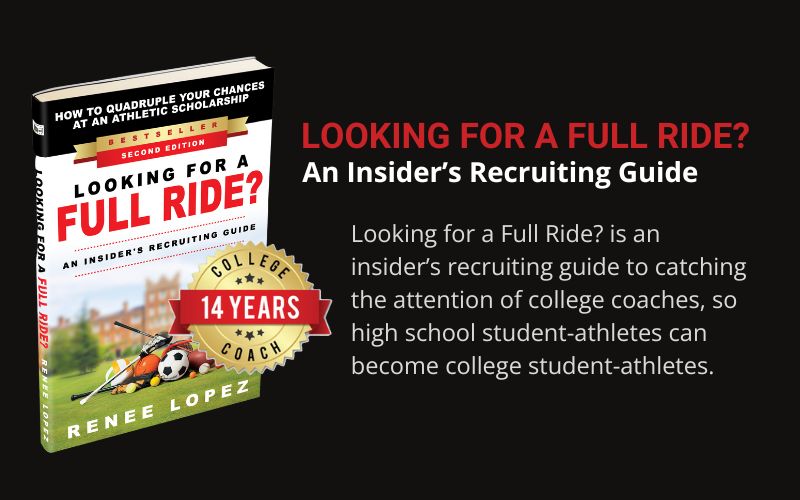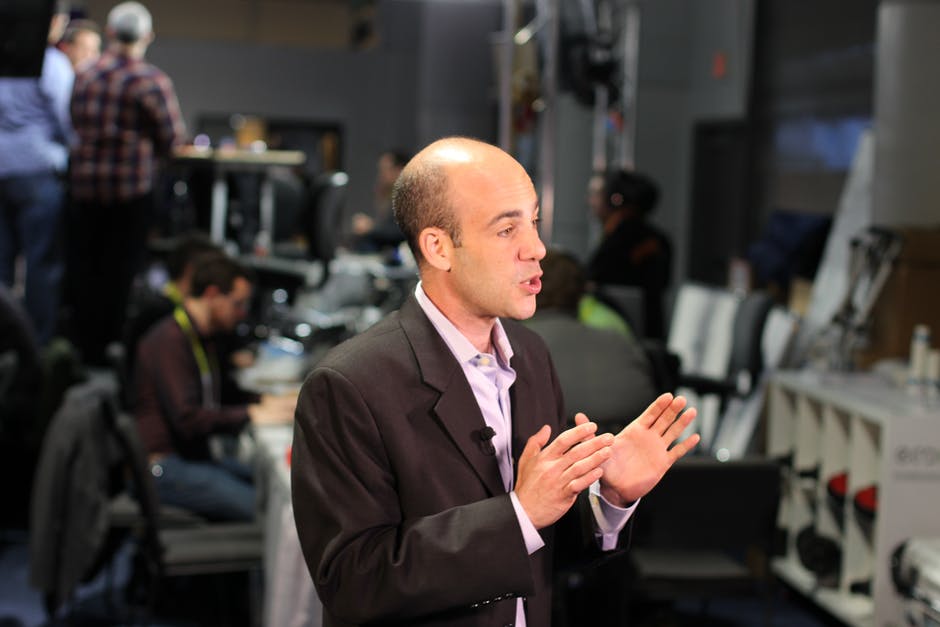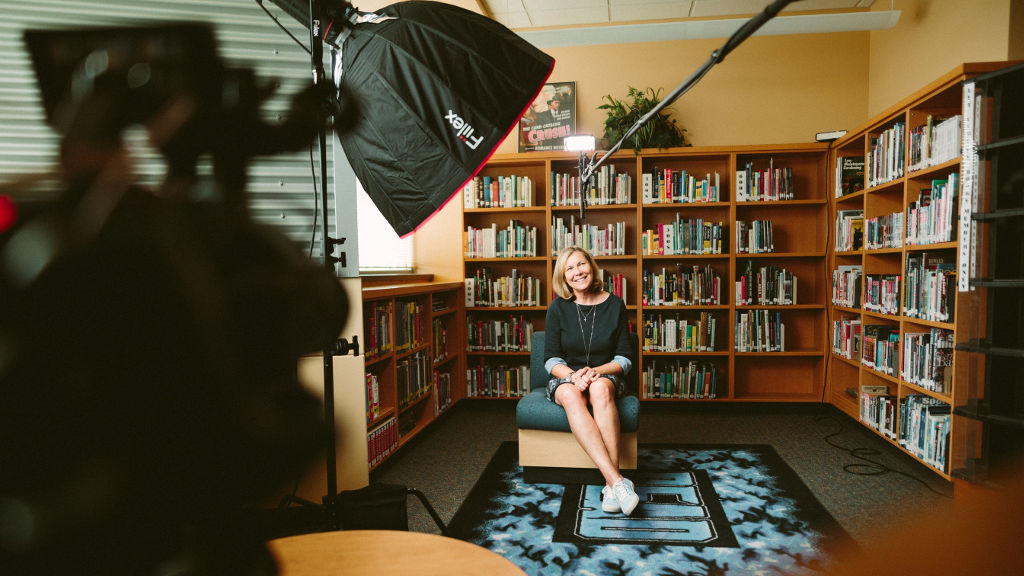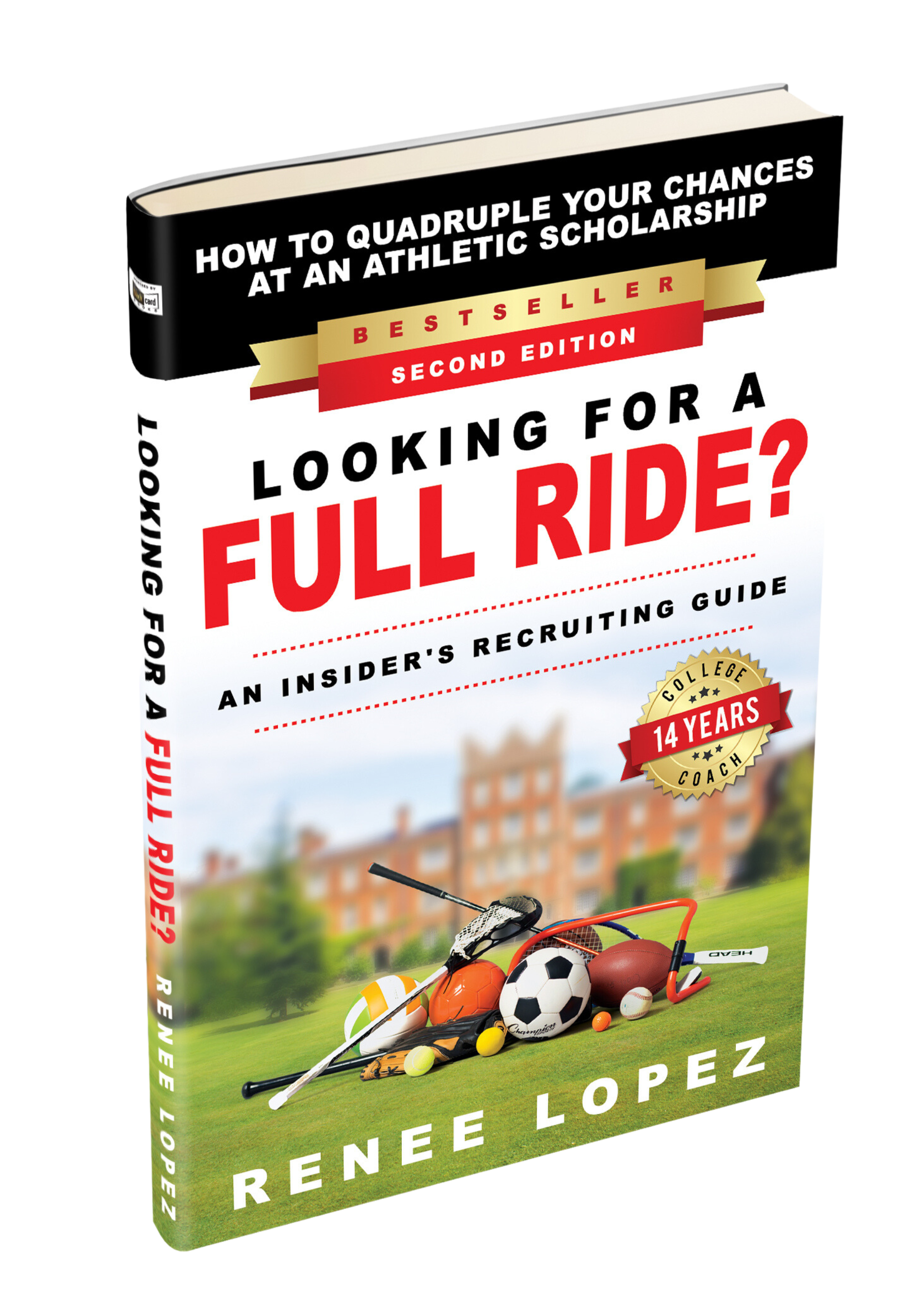3 Factors to Consider To Work In Sports
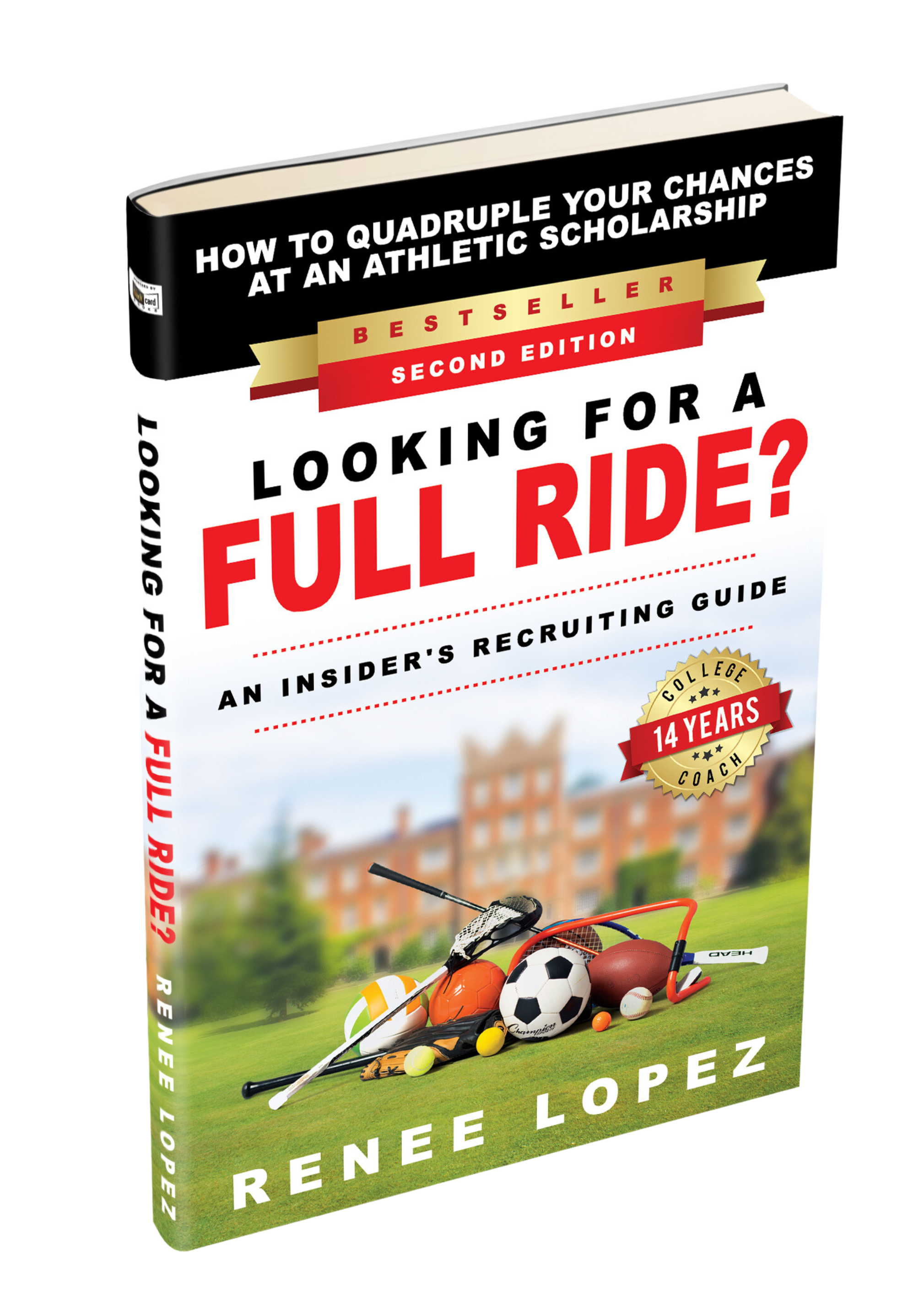 Having been in the sports industry for over twenty years and the author of the book, Looking For A FULL RIDE?: An Insider’s Recruiting Guide, I am often around high school student-athletes who want to learn more about working in college or professional sports. Their passion and excitement for competition often leads them to one of my seminars on college recruiting. Unfortunately, the number of high school student-athletes who will get the opportunity to play in college (see NCAA Probability of Playing College Sports chart) leads a lot of them to realize they do not have the level of talent or drive to continue playing their sport at the next level. Although, some may consider being a walk-on (Please see our blog related to Becoming A Walk-On).
Having been in the sports industry for over twenty years and the author of the book, Looking For A FULL RIDE?: An Insider’s Recruiting Guide, I am often around high school student-athletes who want to learn more about working in college or professional sports. Their passion and excitement for competition often leads them to one of my seminars on college recruiting. Unfortunately, the number of high school student-athletes who will get the opportunity to play in college (see NCAA Probability of Playing College Sports chart) leads a lot of them to realize they do not have the level of talent or drive to continue playing their sport at the next level. Although, some may consider being a walk-on (Please see our blog related to Becoming A Walk-On).
As some signing dates have passed for some sports, many families have asked if working in college sports is still possible even if you are not a college student-athlete. While I personally was a college athlete and then went on to be a college coach for 14 years and NCAA Compliance Director, I think the answer to this question is still a resounding yes, you can work in sports having not been a college athlete. It is really about knowing which avenues to pursue to help in getting opportunities. I think there are 3 essential factors: college major, practical experience, and networking.
1. College Major
There are many options to consider of working in college or professional sports. While many instantly think coaching, I would encourage you to explore other options if you are not going to be a college athlete. Are there certainly some college and professional coaches who did not play in college? Sure, but it is a bit more difficult path.
The reality is there are many who work in sports who are not coaching. A lot of people work on the media side of sports as journalists, photographers, social media managers, broadcasters, video production specialists, and college sports information directors. Many others work as sports agents, league offices, NCAA/NAIA, sport specific national governing bodies, and even the United States Olympics Committee. Still others work in sport and coaching education programs such as the Positive Coaching Alliance or National Alliance for Youth Sports. Finally, there are many others who work with athletes related to the medical field such as athletic trainers, orthopedic doctors, strength and conditioning specialists, and physical therapists. (See our recent 2 Part Blog Series on Athletic Training).
Each of these would typically require you to pursue a major that would suit a specific career path such as Pre-Med or Athletic Training if pursuing a medical career and likewise, a Communications or English major would help if you would like to be a journalist. However, there are many who pursue a degree in Exercise Sport Science/Sport Management (my graduate work so I am slightly biased!), Sports Administration or Leadership, or Sport Marketing which would all be helpful in working in the business side of athletic programs. Still others pursue a Physical Education/Coaching degree which offer valuable insight into athletic development and the learning process.
Words of Wisdom? It’s very important to research top notch programs. Not only is important to see what type of research their faculty are currently involved with, but the internships and positions in which their program graduates are working in your interest areas. Remember, while your choice of major can be important, it should open doors to the very valuable practicum experiences.
2. Practical Experience
Most people see the glamour and glitz behind college and professional sports, especially with the entire country being fixated on the recent Winter Olympics and March Madness in College Sports. However, in order to be working behind the scenes, there were a lot of steps that the majority have taken which of which are not so glamorous. It is all about getting practical experiences to put on your resume while you are in school which can lead to the next opportunity.
For example, many coaches serve as graduate assistants for an athletic program before moving up to an assistant. Graduate assistants often do data entry, laundry for the team, pick up cones, plan team meals, fill out NCAA Compliance forms, and deliver camp brochures to local youth teams. If you ask anyone who is in middle or upper management of a professional sports team, they will often discuss the 12, 14, 16, or 18 hour days they worked as an intern stuffing envelopes, taking tickets, handing out marketing materials, and other menial tasks. I know one agent who as an intern, had to make sure an important client had the right drink from Starbucks before any TV appearance.
The reality is these practical experiences, whether it is an internship, graduate assistantship, practicum, or entry-level job, allow you to move up in an organization. Most pay very small wages and have long hours. Some may require considerable travel. However, these initial practical experiences will either make you or break you to work in the sports field. They can lead to many other higher paying positions, but this is where our final point comes in….networking is the name of the game!
3. Networking
Why on earth do you work some of these low paying and long hour jobs? To be able to network! The sports industry is so much about who you know and not necessarily what you know. These entry-level jobs allow you often times to be around the decision-makers and people who can help or hurt your sports career. I recommend you think every day that someone important is always watching. No matter what the task, you demonstrate you have a positive attitude and willingness to tackle the endeavor.
Through networking events with the NCAA, I have been honored to know and work with so many amazing people in the sports industry over the years. I want to introduce you to one of them who has an amazing background and I think can provide some additional insight to working in the athletic world.
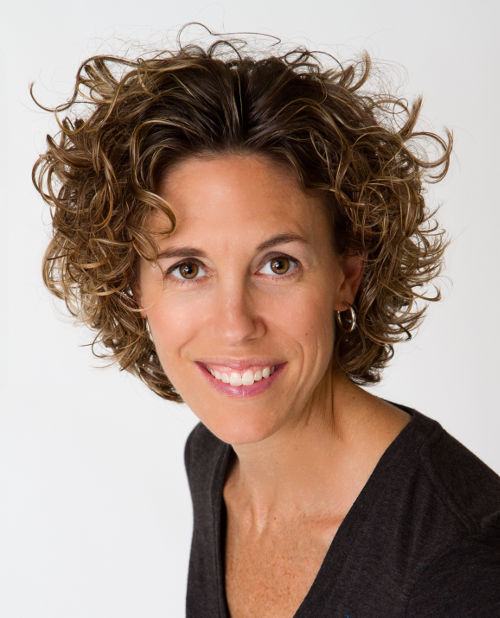 Megan Kahn was a college coach for 4 years, an associate/assistant commissioner in the Atlantic 10 for 4 years, and Atlantic Coast Conference for 2 years. Her undergraduate degree was a Bachelor of Science (with an emphasis in Exercise Physiology) and graduate work was in Education (with an emphasis in Sport Management).
Megan Kahn was a college coach for 4 years, an associate/assistant commissioner in the Atlantic 10 for 4 years, and Atlantic Coast Conference for 2 years. Her undergraduate degree was a Bachelor of Science (with an emphasis in Exercise Physiology) and graduate work was in Education (with an emphasis in Sport Management).
She currently is the former Executive Director for the WeCoach and now is the Vice President Women’s Basketball of the Big Ten. As I interviewed her about the college recruiting process, I asked a few questions about advice for those wanting to break into the industry. She echoed many of my thoughts having worked in various aspects of the sport industry over the years:
Coach Renee: Megan, in speaking to many high school student-athletes in recruiting seminars, I encounter a lot who want to major in Sport Management. What advice do you have for those who want to work in college sports in the future?
Megan Kahn: Working in sports has become so competitive; honestly, looking back, I am not sure I would be where I am today if I was doing it all over again. First and foremost, you can’t work in sports just because you “like” sports or enjoy being around sports. You have to thrive on the journey, enjoy being entrenched in the “dirty work,” often times working behind the scenes where it’s not all glitz and glamour. Volunteer on the local, regional and national level. Many aren’t willing to take internships or fellowships because of minimal or no pay, but the experience can be invaluable.
Be a team player. Learn to do a variety of jobs no matter how low or high-level, which not only make you make you a treasured resource, but also expose you to many different career paths. Build relationships and grow your network in an authentic way. Sports is a people-business; you never know who may end up being your boss or connected to a position you desire one day.
Your major is important, but it won’t define you. Be committed to becoming a life-long learner. This industry is changing so rapidly with technology advancements, with new professional opportunities, and more dollars being spent in sports. As you weave your way through your career, you can refine and find the things that you are passionate about over time.
Coach Renee: Describe your current role with the Alliance and the Women’s Coaches Academy.
Megan: Having been a NCAA Women Coaches Academy (WCA) graduate from the second class ever (2004) and involved with the Alliance of Women Coaches since it was founded in 2011, this position as Executive Director of the Alliance has been an extension of so many personal and professional roles for me during my career.
The Alliance has become the premier organization for women coaches, across all sports and levels, by providing the education and resources they need to stay and advance in the profession. I feel very blessed to do such meaningful work, to lead a talented staff and be surrounded by such an invaluable group of leaders in our Board of Directors.
We know women coaches face unique challenges that their male counterparts do not. Where can women turn – outside of their own sport associations – for support, tools, and skills to thrive and advance personally and professionally? That’s what I spend every second of every day doing – trying to focus on the needs of our membership, how we can continue to engage our growing community and the ways in which the Alliance can better support females in the coaching profession.
The NCAA Women Coaches Academy is our premier in-person program, hosted three times annually, in partnership with the NCAA. To date, over 1600 women have benefitted from this unique, in-person learning opportunity. Feedback shows this program is transformative and life-changing. To know our work is having such a profound impact is rewarding, but at the same time, we’re not stopping.
The Alliance has made enormous strides this past year in an effort to serve more women coaches, in more way and across more levels. This includes increased in-person educational opportunities, established our mentor program, developed a next-level NCAA Women Coaches Academy (called Academy 2.0), and improved online resources. Our coaches still want and deserve more as we strive to recruit, retain and advance women in the profession.
Coach Renee: Any advice for young women especially who want to go into college coaching?
Megan: DO IT – WE NEED YOU! There aren’t enough young women considering a career in coaching. Men have two career paths – to coach on the men’s side or the women’s side. Unfortunately, in today’s world, it is very rare for a woman to coach men. We need young girls (and boys) to see women as successful coaches and to accept and respect seeing strong, passionate women on the sideline. We need more women as positive role models in the coaching profession.
This begins at the grassroots level. If you are a current coach, encourage your female student-athletes to consider a career in coaching. If you are a student-athlete and are interested in coaching, then find a mentor, shadow a coach, volunteer in the athletic department, build a network of trusted advisors to help take you under their wing. There are plenty of women in this industry who want to help other women succeed. We need you. Women coaches matter. Don’t let anyone tell you differently!
If you are in the process of exploring career options, I encourage you to research the world of athletics in its various facets. However, if you are afraid of rolling up your sleeves and working hard, it is probably not the place for you! Research the sports-related majors you find interesting and perhaps you will stumble upon the career that has been calling your name for years, with or without being a college athlete!
Want some help with the recruiting process? Join some of our 9 Facebook Groups:
- Parents of High School Student Athletes Walking Through The Process (All Sports)
- Beyond Xs & Os 4 HS Athletes: Health, Recruiting, Team Building, Mental Training (All Sports)
- Athletic Recruiting Education for Principals, AD's, and Counselors (All Sports)
- Club/HS Coaches Learning College Recruiting Process (All Sports)
- Play College Soccer (Soccer Specifically)
- College Recruiting for GK's (Soccer Specifically)
- Positive Team Building for Pro, College, HS, and Youth Coaches (All Sports)
- Mindset & Leadership Lessons for Athletes, Coaches/Teachers, & Business Leaders (All Sports & Business Leaders)
- Christian Competitors (Coaches & Athletes Serving Christ @Field/Court/Gym) (Sports Ministry for All)
Would you like her to do individual consulting with your family to get an insider’s perspective?
Email info@lookingforafullride.com for more details.
Did you know Coach Renee Lopez can come to your school or sports organization?
Email info@lookingforafullride.com for more details.
Coach Renee Lopez
As a 17 year coaching veteran, Coach Renee Lopez is a recruiting expert for high school student-athletes. She uses her NCAA Division I, II, and NAIA Head Coaching experience to help families navigate the recruiting process to be identified by college coaches and help them find the right “fit” for playing at the next level. She has produced 3 All-Americans, over 30 All-Conference athletes and Her teams have been honored with awards for team academic accomplishments, sportsmanship, and sports ministry. In addition, Coach Renee Lopez has been named Coach of the Year by her peers.
She presents recruiting seminars across the country, has recently been featured in USA Weekly, with the National Alliance for Youth Sports, on SiriusXM Radio and ESPN Radio. She is the author of the book, Looking For A FULL RIDE?: An Insider’s Recruiting Guide where she has interviewed over 65 college recruiters across all sports and college levels. In addition, she runs 9 Facebook groups to help facilitate conversations on college recruiting education, coaching education, leadership development, and sports ministry. She is also a certified speaker, trainer and coach for the John Maxwell Team, Jon Gordon Company, 3Dimensional Coaching, and the Positive Coaching Alliance.
She also does private consulting for student-athletes and their families to help in understanding the often daunting process of recruiting. (See one family’s testimonial.) If you are looking for help in the college recruiting process, please email Coach Renee Lopez at info@lookingforafullride.com.
